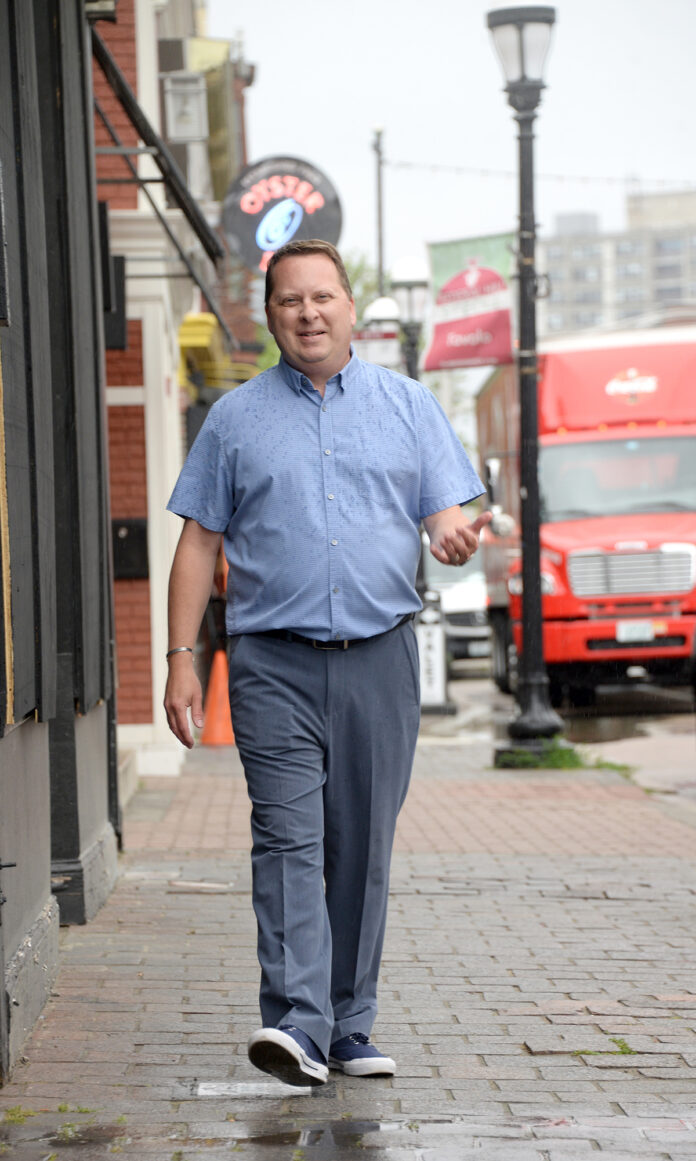Rick Simone | Founder, Ocean State Coalition; executive director, Federal Hill Commerce Association
1. What exactly is the Ocean State Coalition and how and why did it start? The Ocean State Coalition was formed in March to bring small-business owners or operators together as a result of the COVID-19 closures. Our goal is to connect businesses of all disciplines to support and advocate for one another’s like-minded needs.
2. What actions and advocacy has the coalition taken since forming? The coalition has hosted regular calls and Zoom meetings with congressional leaders, the U.S. Small Business Administration, R.I. Commerce Corp., R.I. Department of Health, R.I. Department of Labor and Training to provide feedback and gather vital information. We advocated for increased assistance regarding the [Paycheck Protection Program] and [Economic Injury Disaster Loans]. Additionally, we have advocated for specific needs throughout the quarantine period and now during each phase of reopening.
3. Why was it important to restaurants to be able to reopen indoor dining June 1? What kind of additional financial consequences would there be if that had not happened? June 1 was a critical deadline for indoor dining to begin as restaurants needed the ability to serve guests, regardless of the weather conditions. Restaurants’ indoor spaces had been closed 2½ months. If we had reached a three-month period of indoor closures, the likelihood of mass permanent closures was very real.
4. While many restaurants were pushing for a June 1 reopening, others were not ready to open at all. How can the state and groups such as your association best support these business owners, recognizing the range of attitudes? As a coalition and as individuals, we respect each person’s right to determine for themselves when they will feel ready to reopen. The best way to support these individuals is for us to all be there ... with information and support as they become ready to reopen.
5. How will COVID-19 impact Federal Hill small businesses in the long term? It has already impacted all small businesses in the way we think about our daily operations, our ability to care for employees and guests, and in truth, the viability of our business models for the future. In the long term, it seems to be sparking conversations on how to better prepare for future crises – whether that be insurance needs, profit-saving potential, or smaller, more nimble operating models.
Nancy Lavin is a PBN staff writer. Contact her at Lavin@PBN.com.













